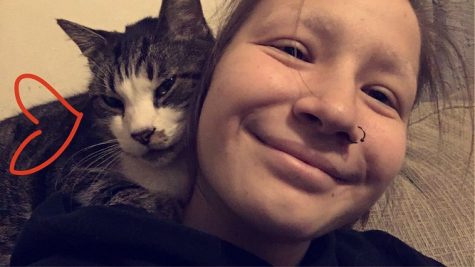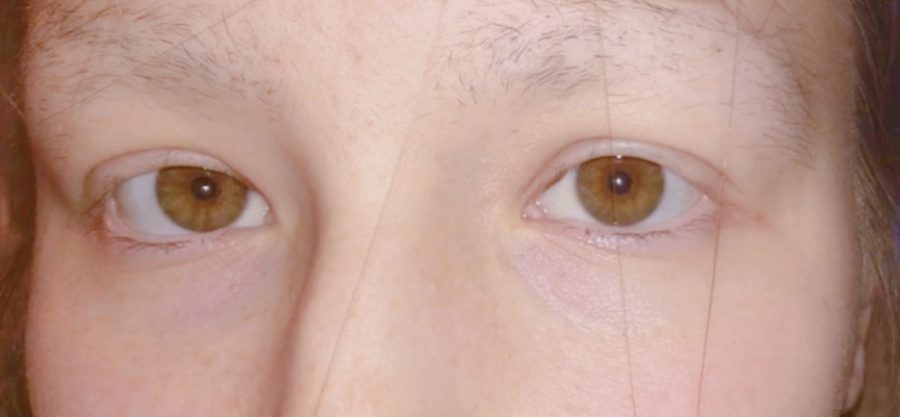Hair Pulling Disorder
A personal account of a mental compulsive disorder
Izzy Stoica, a senior at LHS, shares her personal struggle with Trichotillomania, known as the hair-pulling disorder. Photo courtesy of Stoica.
May 14, 2020

Stoica and her family cat, George. Stoica said that learning to trust the process of counseling has helped her deal with childhood trauma.
For some of us, it can be difficult to discuss our personal traumas and disorders. We’re afraid that we’re alone or that no one can understand. In this article, I had the opportunity to discuss my childhood experiences and how they manifested into a mental health issue known as Trichotillomania, pronounced trik-o-til-o-MAY-neeuh, otherwise known as the hair-pulling disorder.
Before I was even born, there were a lot of family issues that were very problematic on both sides of
the family. My mom got pregnant with her first child, my oldest brother Aidan, while still in high school. Coming from a religious family, others looked down on her. At the same time, our father moved from his home country of
Romania to America. He struggled to learn how to communicate in English and adapt to an unfamiliar culture.
When they came together, my parent’s relationship was volatile. My dad was overly possessive,
manipulative, and emotionally destructive with my mom. My mom was mentally unstable, felt trapped in her young
life, and attempted suicide. There were custody battles in the courts and we rarely spent quality time with our parents.
Almost my entire childhood was filled with traumatic experiences. My blood siblings and I felt caught in the middle between my parents and their divorce. Our two grandmothers often took turns taking care of us. They came from very different backgrounds, cultures, and had different morals and virtues. It was very confusing for us. Eventually, we spent a year in a foster home.
At about eight years old, I started experiencing anxiety and began over-thinking the simplest of things. I was in constant conflict with my family. I was scared and confused. It was at about that time that I started to pull out my eyebrows. At 10 years old, the missing facial hair on my eyebrows and eyelashes started to become noticeable. The reactions I received from my family ranged from complete unawareness to inquisitiveness. Some made even made fun of me.
Personally, I was extremely self-conscious and had no idea why I was pulling out my eyebrows. My mom tried to be caring and loving, while my dad was impatient with me. No one, it seemed, could help me. I felt alone. But two years ago, I discovered through research that the condition I was suffering had a name.
Trichotillomania is a mental compulsive disorder that causes a strong urge to pull hair from the scalp, eyebrows, and eyelashes. Surprisingly, it is common with over 200,000 diagnosed cases every year. It falls under OCD and is often associated with trauma and is considered a stress reliever.
Through counseling, I have realized that it takes time to heal. I have learned that a hopeful mindset and trust in professional counseling leads to recovery. I hope that my story will help someone else who is hurting and that others will be conscience of what someone else may be feeling and remember to always be kind.


